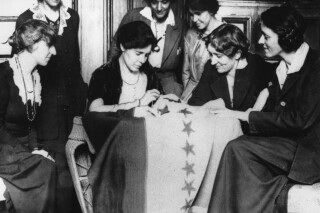CANADA INVADED RUSSIA IN WWI

Ukraine's armed forces are now authorized to use donated Canadian military equipment like the Leopard tank (German version pictured) inside Russian territory, Canada’s Department of National Defence confirmed.

Ukraine's armed forces are now authorized to use donated Canadian military equipment like the Leopard tank (German version pictured) inside Russian territory, Canada’s Department of National Defence confirmed.
File Photo by Filip Singer/EPA-EFE
Aug. 16 (UPI) -- Ukraine's armed forces are now authorized to use donated Canadian military equipment inside Russian territory, Canada's Department of National Defence confirmed.
Canadian officials made the comments Thursday, joining several other countries that have already given Ukraine the green light to use donated weapons inside Russia's territorial border.
Canada donated eight Leopard 2A4 tanks, several dozen armored combat support vehicles, hundreds of armored patrol vehicles and 4,200 M72A5-C1 rocket launchers. It has also provided ammunition and air defense systems.
"Ukrainians know best how to defend their homeland, and we're committed to supporting their capacity," Canadian Department of National Defense spokesperson Andrée-Anne Poulin told POLITICO Friday.
"Canada steadfastly supports Ukraine's right to defend itself against Russia's illegal and unjustifiable war -- and that is why we have committed over $4 billion in military assistance to Ukraine."
Overall, Canada has provided around $4.5 billion in military assistance to Ukraine since 2022. The Canadian government has pledged to continue military support until at least 2029.
British officials on Thursday gave Ukraine permission to use its donated weapons in Russian territory as long as international laws are respected.
The news came after Ukrainian President Volodymyr Zelensky addressed Britain's Cabinet in July, calling for a reduction of weapon use restrictions on arms supplied by Western countries for use in Ukraine's war with Russia.
Germany has also previously said Ukraine has permission to use donated Western weapons inside Russian territory.
Zelensky on Thursday said his troops have now captured the town of Sudzha as they continue their incursion into Russian territory.
A ground invasion into Russia's western Kursk Oblast has been progressing for a week. The region shares a border with Ukraine and is where Russian officials have declared a state of emergency and evacuated thousands of residents in response.
It wasn't immediately clear if any of the Western donated military hardware was being used in the offensive.
Aug. 16 (UPI) -- Ukraine's armed forces are now authorized to use donated Canadian military equipment inside Russian territory, Canada's Department of National Defence confirmed.
Canadian officials made the comments Thursday, joining several other countries that have already given Ukraine the green light to use donated weapons inside Russia's territorial border.
Canada donated eight Leopard 2A4 tanks, several dozen armored combat support vehicles, hundreds of armored patrol vehicles and 4,200 M72A5-C1 rocket launchers. It has also provided ammunition and air defense systems.
"Ukrainians know best how to defend their homeland, and we're committed to supporting their capacity," Canadian Department of National Defense spokesperson Andrée-Anne Poulin told POLITICO Friday.
"Canada steadfastly supports Ukraine's right to defend itself against Russia's illegal and unjustifiable war -- and that is why we have committed over $4 billion in military assistance to Ukraine."
Overall, Canada has provided around $4.5 billion in military assistance to Ukraine since 2022. The Canadian government has pledged to continue military support until at least 2029.
British officials on Thursday gave Ukraine permission to use its donated weapons in Russian territory as long as international laws are respected.
The news came after Ukrainian President Volodymyr Zelensky addressed Britain's Cabinet in July, calling for a reduction of weapon use restrictions on arms supplied by Western countries for use in Ukraine's war with Russia.
Germany has also previously said Ukraine has permission to use donated Western weapons inside Russian territory.
Zelensky on Thursday said his troops have now captured the town of Sudzha as they continue their incursion into Russian territory.
A ground invasion into Russia's western Kursk Oblast has been progressing for a week. The region shares a border with Ukraine and is where Russian officials have declared a state of emergency and evacuated thousands of residents in response.
It wasn't immediately clear if any of the Western donated military hardware was being used in the offensive.
























